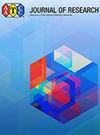Multifunctional Modification with TiO2, SiO2, and Flame Retardant Agent on Upholstery Fabrics Produced From Recycled Cotton Fibers
IF 1.2
4区 工程技术
Q4 MATERIALS SCIENCE, TEXTILES
引用次数: 1
Abstract
Environmental pollution threatens the life of the world nowadays. Increasing the world population, rapidly changing fashion trends, and marketing activities have caused serious increases in textile production and consumption. As the size of the production volume increases, the effects of the textile industry on the ecosystem are increased as well. Recycling is critical in textiles to use less energy, water, and chemicals and to pollute our environment less. The aim of this study to develop functional and high value-added upholstery fabrics by recycling textile wastes. In the scope of this study, the effects of wastes obtained from different sources and different recycling fiber ratios on fabric properties were investigated. Furthermore, fabrics containing recycled cotton wastes blended with polyester fiber were also included. First, the abrasion resistance test was carried out on the fabrics produced from these waste fibers, and the fabrics with the best performance for upholstery fabrics were determined, and then flame retardant, water repellency, and soil release finishing processes were applied to these fabrics. It was concluded that the flame retardant, water, and stain repellent upholstery fabrics from recycled fibers were successfully developed. Also, fabrics containing 15% recycled cotton fabrics obtained better results among the fabrics.二氧化钛、二氧化硅和阻燃剂对再生棉纤维室内装饰织物的多功能改性
环境污染威胁着当今世界的生活。世界人口的增加、时尚趋势的快速变化和营销活动导致了纺织品生产和消费的严重增长。随着产量的增加,纺织业对生态系统的影响也在增加。纺织品的回收利用对于减少能源、水和化学品的使用以及减少对环境的污染至关重要。本研究的目的是通过回收纺织废料来开发功能性和高附加值的室内装饰织物。在本研究范围内,研究了来自不同来源和不同回收纤维比例的废物对织物性能的影响。此外,还包括含有再生棉废料与聚酯纤维混纺的织物。首先,对这些废弃纤维生产的织物进行了耐磨性测试,确定了室内装饰织物性能最好的织物,然后对这些织物进行阻燃、防水和防土整理。结果表明,利用再生纤维成功研制出阻燃、防水、防污的室内装饰织物。此外,在这些织物中,含有15%再生棉织物的织物获得了更好的效果。
本文章由计算机程序翻译,如有差异,请以英文原文为准。
求助全文
约1分钟内获得全文
求助全文
来源期刊

AATCC Journal of Research
MATERIALS SCIENCE, TEXTILES-
CiteScore
1.30
自引率
0.00%
发文量
34
期刊介绍:
AATCC Journal of Research. This textile research journal has a broad scope: from advanced materials, fibers, and textile and polymer chemistry, to color science, apparel design, and sustainability.
Now indexed by Science Citation Index Extended (SCIE) and discoverable in the Clarivate Analytics Web of Science Core Collection! The Journal’s impact factor is available in Journal Citation Reports.
 求助内容:
求助内容: 应助结果提醒方式:
应助结果提醒方式:


